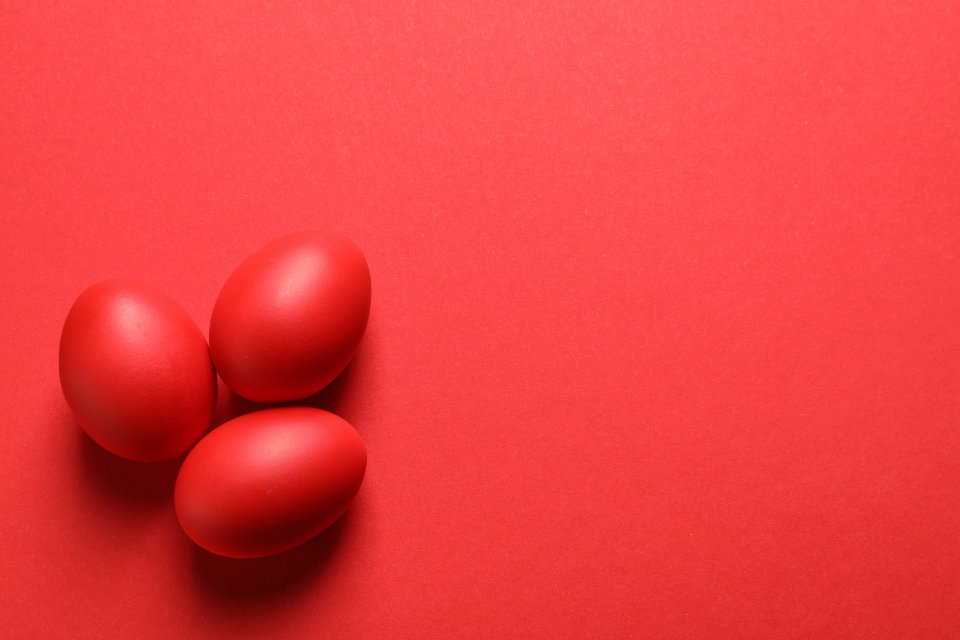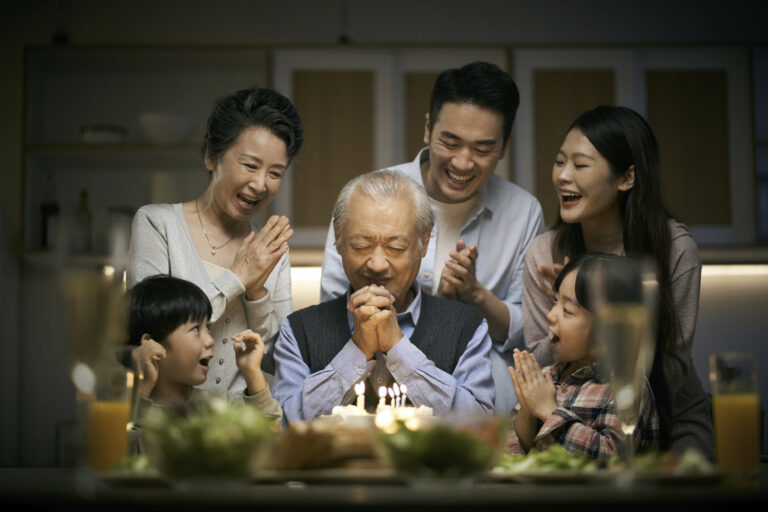Chinese birthday celebrations are rich in tradition and deeply rooted in cultural significance. These events are more than just marking another year; they symbolize good fortune, prosperity, and the continuation of life’s cycle.
Table of Contents
Historical Background of Chinese Birthday Customs
Chinese birthday customs, deeply entwined with the nation’s rich history, have evolved over centuries under the significant influence of Confucianism and Taoism. These philosophical teachings, with their profound emphasis on respect for elders and living in harmony with nature, have greatly shaped the traditional approaches to celebrating birthdays.
Central to these celebrations is the Chinese Calendar, a lunisolar system that intertwines the lunar and solar patterns. This calendar plays a crucial role in determining the dates of traditional birthdays and is integral to the Chinese age reckoning system.
Unlike the Western age system, Chinese age reckoning typically considers a person a year old at birth and adds a year to their age at each Lunar New Year. This unique approach to age and time, deeply rooted in the Chinese Calendar, reflects the cultural importance of cyclical patterns and natural rhythms in marking the passage of life.
These historical and cultural elements blend to create a birthday celebration framework that is not just about marking another year but also about honoring life’s journey in accordance with age-old wisdom and natural cycles.
Common Rituals in Chinese Birthday Celebrations
Chinese birthday celebrations are steeped in tradition, with rituals that are both symbolic and significant. These customs reflect a deep respect for age, life, and familial bonds. Here’s an overview of the most common rituals:
- Noodles for Longevity: Consuming long noodles, known as ‘longevity noodles’, symbolizes the wish for a long and prosperous life.
- Red Eggs for Good Luck: Red eggs are often served or given as gifts, representing happiness and the renewal of life.
- Red Clothing: The birthday person might wear red, a color symbolizing luck and happiness in Chinese culture.
- Gifts of Money in Red Envelopes: ‘Hongbao’, or red envelopes with money, are common gifts, denoting luck and prosperity.
- Peach-Shaped Steamed Buns: Known as ‘shoutao’, these buns symbolize immortality and are often seen in milestone birthday celebrations.
- Tea Ceremony: In some families, a tea ceremony is held where the birthday person serves tea to elders as a sign of respect and gratitude.
- Birthday Cakes with Peach Symbolism: Modern celebrations often include cakes, sometimes adorned with peach designs, symbolizing longevity and health, drawing from traditional peach-shaped buns.
- Couplets and Poems: Writing and presenting couplets or poems is a practice in some families, expressing good wishes, health, and a prosperous life, reflecting the rich literary tradition in Chinese culture.
These rituals and practices not only add to the festivity of the occasion but also carry deep cultural meanings, emphasizing health, prosperity, and long life.
Milestone Birthdays in Chinese Culture
Chinese culture imbues birthdays, especially certain milestone years, with profound meaning and distinct customs. Here’s an insight into the milestone birthdays, their significance, and the dos and don’ts associated with them:
- Baby’s First Lunar Month (满月 – mǎnyuè):
- Marked with the “red egg” ceremony, symbolizing happiness, fertility, and new life.
- Red eggs are given to friends and family to celebrate the baby’s first month.
- 60th Birthday:
- A significant milestone symbolizing the completion of a full life cycle.
- Often celebrated grandly with the whole family and a big banquet.
- 70th Birthday:
- Represents long life and good fortune, celebrated with family gatherings.
- 80th and 90th Birthdays:
- Similar to the 60th birthday, these are also celebrated as significant milestones reflecting longevity and prosperity.
- 100th Birthday and Beyond:
- Celebrated with great reverence, marking an exceptionally long life, often with large family gatherings and community recognition.
- Ren Ri (人日):
- Celebrated on the 7th day of the first lunar month of the Chinese New Year, it is regarded as everyone’s birthday, marking the creation of humans according to Chinese mythology.
Taboos and Superstitions:
- Belated Celebrations:
- Celebrating a birthday after the actual birth date is considered a big taboo, as it is believed to make one feel older.
- Specific Age Taboos for Women and Men:
- Women traditionally do not celebrate their 30th and 33rd and 66th birthdays due to superstitions related to bad luck. For the 33rd birthday, a ritual involving chopping meat 33 times is performed to ward off evil spirits.
- Men might avoid celebrating their 40th birthday, considering it an unlucky year, and instead remain 39 for another year.
- Gift Choices:
- Certain gifts like watches, candles, chrysanthemums, and shoes are considered taboo due to their associations with mortality and bad luck.
Understanding these customs and taboos is essential for anyone looking to participate in or honor a Chinese birthday celebration.
These traditions, steeped in cultural beliefs and practices, add depth and meaning to the celebration of life’s milestones.

Regional Variations in Chinese Birthday Celebrations
Chinese birthday customs, while rooted in long standing traditions, exhibit fascinating regional variations, especially across Southeast Asian communities. These variations reflect a blend of Chinese customs with local cultural influences, creating unique celebratory practices.
One prominent feature in many Southeast Asian Chinese celebrations is the serving of mee sua, or longevity noodles. Symbolizing long life and prosperity, these noodles are a staple in birthday meals, embodying the wish for longevity. Accompanying mee sua, red eggs, dyed in auspicious red, are often presented. In some regions, it’s customary for the birthday person to peel their own red egg, signifying self-reliance and personal growth in the coming year.
These practices illustrate how traditional Chinese birthday rituals have been adapted and integrated with local customs in Southeast Asia. The emphasis on specific foods like mee sua and red eggs highlights the importance of symbolism and tradition in these celebrations. Each region adds its own flavor to these customs, making every birthday celebration not just a personal joy, but also a reflection of a rich cultural tapestry.
Incorporating Traditional Messages in Chinese Birthday Wishes
Chinese birthday wishes are often imbued with deep cultural significance, blending traditional blessings, symbolism, and contemporary expressions. Here are some heartfelt birthday wishes for the elderly, friends, and family members, each carrying a unique cultural essence:
For the Elderly:
- 祝您福如东海,寿比南山。 (Zhù nǐn fú rú dōnghǎi, shòu bǐ nánshān.) – May your blessings be as vast as the East China sea, and may you live a long life.
- 祝您年年有今日,岁岁有今朝。 (Zhù nín nián nián yǒu jīnrì, suì suì yǒu jīnzhāo.) – May you have a day like this to celebrate for all the future years.
- 祝您生日快乐,长命百岁! (Zhù nín shēngrì kuàilè, cháng mìng bǎi suì!) – Wishing you a happy birthday, and may you have a long life and live to be a hundred years old.
- 祝您生日快乐,身体健康,越活越年轻。 (Zhù nín shēngrì kuàilè, shēntǐ jiànkāng, yuè huó yuè niánqīng.) – Wishing you a happy birthday, and may you grow healthier and younger with age.
For Friends:
- 生日快乐,朋友! (Shēngrì kuàilè, péngyǒu!) – Happy birthday, friend!
- 祝你生日快乐,好友! (Zhù nǐ shēngrì kuàilè, hǎoyǒu!) – Wishing you a happy birthday, good friend!
- 祝你生日快乐,兄弟! (Zhù nǐ shēngrì kuàilè, xiōngdì!) – Wishing you a happy birthday, brother!
For Family Members:
- 祝你生日快乐,终身幸福。 (Zhù nǐ shēngrì kuàilè, zhōngshēn xìngfú.) – Wishing you a happy birthday and a lifetime of happiness.
- 祝你欢庆这一天,愿你生日的快乐与分俱增! (Zhù nǐ huān qìng zhè yītiān, yuàn nǐ shēngrì de kuàilè yǔ fēn jù zēng!) – Wishing you a joyous day, and may your birthday happiness only multiply!
- 祝你生日快乐,新的一年中好运、健康、快乐! (Zhù shēngrì kuàilè, xīn de yī nián zhōng hǎo yùn, jiànkāng, kuàilè!) – Wishing you a happy birthday and a year filled with good luck, health, and happiness!
These traditional Chinese birthday messages beautifully encapsulate the essence of well-wishing, blending respect, affection, and the cultural value of longevity and prosperity.
Incorporating these messages in birthday greetings will not only convey your heartfelt wishes but also reflect your appreciation for Chinese cultural traditions.
Birthday Feng Shui: Harmonizing Life’s Celebrations
In Chinese culture, Feng Shui, the art of harmonizing individuals with their surrounding environment, plays a significant role in various aspects of life, including birthdays.
Applying Feng Shui principles to birthday celebrations can enhance positive energy and bring good fortune. Here’s how Feng Shui can influence birthday celebrations:
- Choosing Auspicious Colors: Selecting the right lucky colors for decorations based on the birthday person’s Chinese zodiac sign can boost positive energy. For instance, red is universally auspicious, symbolizing luck and joy.
- Optimal Seating Arrangement: Aligning seating based on the guests’ Kua numbers (derived from their birth dates) can promote harmonious interactions and a joyful atmosphere.
- Gift Selection: Choosing gifts that align with Feng Shui principles, such as items that represent good health, prosperity, or peace, can be more meaningful and beneficial for the recipient.
- Room Layout: Arranging the celebration space to allow for a smooth flow of Qi (energy) can enhance the overall ambiance. Avoid clutter and ensure a clean, welcoming environment.
- Incorporating Nature: Including elements of nature, such as plants or flowers, can bring balance and tranquility to the celebration, in line with Feng Shui principles.
By incorporating these Feng Shui elements into birthday celebrations, one can create a harmonious and energetically positive environment, enhancing the joy and significance of the occasion.
Embracing the Richness of Chinese Birthday Traditions
As we look towards 2024, a year poised to unveil the most luckiest zodiac sign, it’s important to remember and cherish the deep-rooted customs that have shaped Chinese birthday celebrations.
These traditions, from the joyous first-month ceremony to the grandeur of a 60th birthday, are imbued with layers of cultural significance and wisdom. They not only reflect the past but also resonate with contemporary celebrations.
As we navigate the upcoming 2024 Chinese zodiac year, let’s carry forward these time-honored practices, blending them with the new rhythms of life, to keep the essence of these beautiful traditions alive and thriving.



